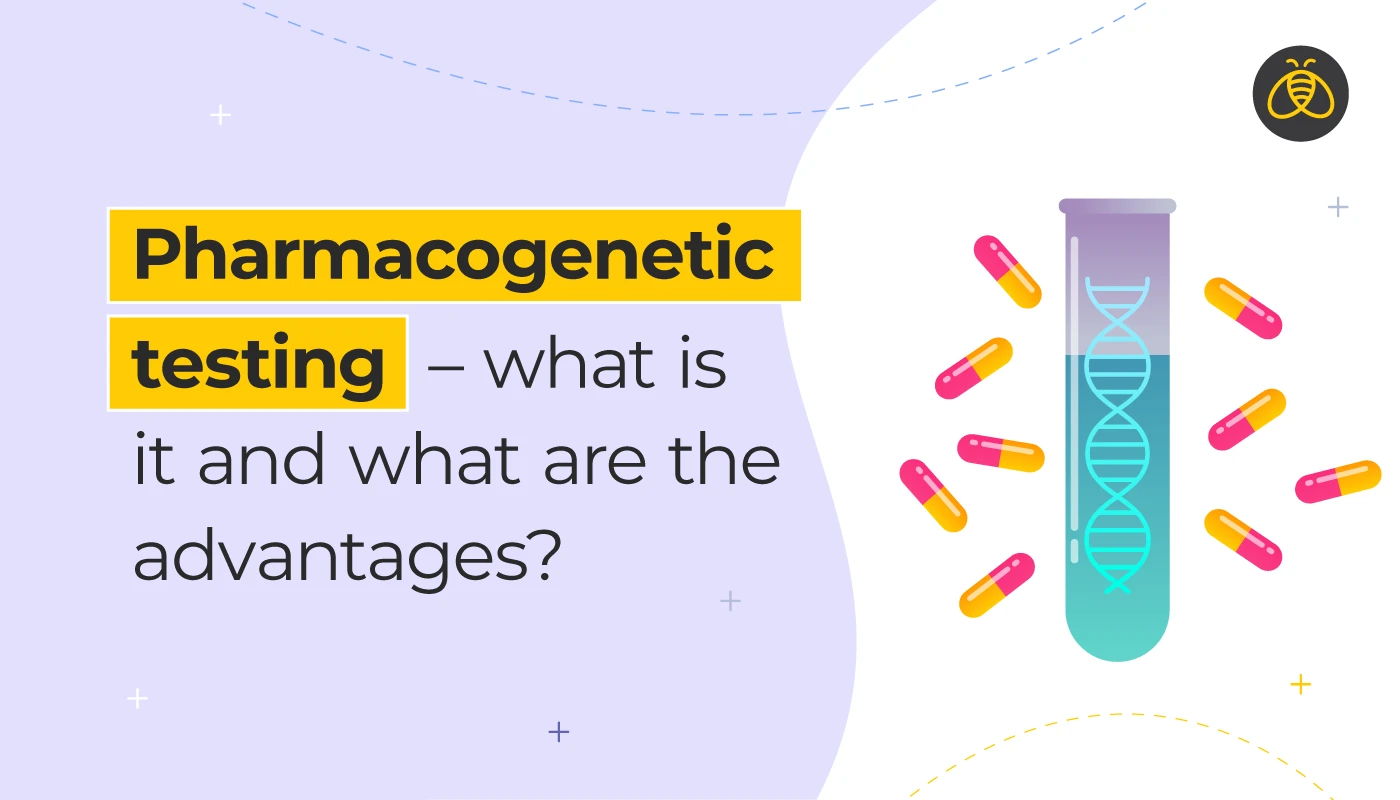Pharmacogenetic testing – what is it and what are the advantages?
By: Benefits by Design | Tuesday September 19, 2023
Updated : Monday September 18, 2023
Each of us is as individual as a snowflake. Which means that we could all react slightly differently to the same prescription drug. With pharmacogenetic testing, scientists take much of the guesswork out of prescribing effective therapies for different people with the same condition. It also offers peace of mind to patients as it confirms the correct medication is being prescribed in the correct dosage.
What is pharmacogenetic testing?
Pharmacogenetic testing builds on the understanding that each person’s genetic make-up is unique. Just as individuals are allergic to different things, drugs can affect people differently. Pharmacogenetics works by testing an individual’s genetic make-up to determine how they will interact with specific drugs. The learnings from these tests can then be applied for a more effective prescription drug therapy regiment.
“By understanding how genetics impact drug metabolism, absorption, and effectiveness, healthcare providers can select the most appropriate treatment for a patient and adjust dosages as needed.” – Dr. Wendi D. Jones, PharmaD
When a drug is brought onto the market, it is generally sold as a “one-size-fits-all” option for anyone with the specific illness for which it was created. However, not all individuals will see the expected results. And this may not be realized for a few weeks or months as the doctor and patient wait for the drug to take effect. With pharmacogenetic testing, doctors can determine how their patients will react to certain drugs prior to taking them.
A study by UK Biobank found “that 99.5% of individuals may have an atypical response to at least 1 drug; on average they may have an atypical response to 10.3 drugs. Nearly 24% of participants have been prescribed a drug for which they are predicted to have an atypical response.”
These numbers show that practically every single person who requires a prescription could benefit from this process.
What are the advantages of pharmacogenetic testing?
Pharmacogenetic testing offers advantages for both individuals and employers.
Eliminates trial-and-error
As mentioned above, it usually takes some time before a doctor and patient can confirm if a new drug is working correctly. In some cases, the drug may not necessarily be incorrect, it may simply be the dosage that needs adjusting. The results of testing can significantly reduce or even eliminate the trial-and-error period for patients with new or changing conditions.
Reduces possible negative side-effects
Some people may need a higher dosage of certain drugs, while others could react negatively. They could even experience drug related toxicity. Testing for this via pharmacogenetics could save someone from long- or short-term adverse side-effects.
One test for life
A person’s genetic make-up does not change throughout their lifetime. This means that the results of the test never expire. It’s important to note that different companies offer varying degrees of thoroughness. Some may focus on only one therapeutic class or treatment area, while others may test for a variety of drugs and/or classification. And some even continue to add different drugs as they develop more conclusions, adding to the patient’s overall report.
Cost containment
Trying different drug therapies can quickly become expensive. Especially if a patient needs to try multiple drugs or dosages prior to finding one that works effectively. This costs the patient in both time and possibly money – depending on the coverage in their province and from their employer. From a plan sponsor point of view, pharmacogenetic testing means less claims for prescription trial-and-error.
Improved overall health
When someone is in need of care, the best thing for them is to receive it as quickly as possible. Trial-and-error can extend the time it takes for a person to begin their journey to recovery or effective maintenance. This could negatively impact other aspects of that individual’s health. One untreated or under-treated condition could lead to comorbidities down the line. And in the end, this can also affect the sustainability of the employee benefits plan, since that person will likely make more claims as they treat more conditions.
Reduction in disability claims
Pharmacogenetic testing can also effectively reduce the duration, severity, and length of disability claims. This can further help with plan sustainability.
There are multiple companies within Canada that provide pharmacogenetic testing, and some employee benefits plans even offer coverage for these tests. If you have benefits with Benefits by Design, you can access them through your extended health with GreenShield, or through your long-term disability coverage with Empire Life.
Drug Trends: The Use of Antidepressants – Cost and Prevalence
Should employers add pharmacogenetic testing to their benefits plan?
Pharmacogenetic testing has the potential to help employees improve their overall health. The benefits of reducing adverse side-effects, trial-and-error periods and comorbidities means employee benefits plans should see less overall utilization. The cost of the test versus the costs of incorrect medication is generally less.
Since we are beginning to understand how all aspects of our health affect other aspects, it could go a long way toward keeping employees happy and healthy. And we believe that is one of the greatest reasons for an employer to offer employee benefits.


